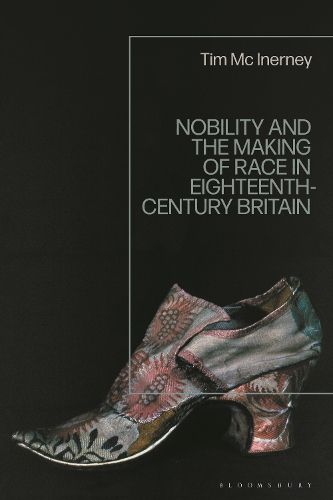Readings Newsletter
Become a Readings Member to make your shopping experience even easier.
Sign in or sign up for free!
You’re not far away from qualifying for FREE standard shipping within Australia
You’ve qualified for FREE standard shipping within Australia
The cart is loading…






Nobility and the Making of Race in Eighteenth-Century Britain focuses on 18th-century Britain and Ireland at a time when race theory as we know it today was steadily emerging in the realm of natural philosophy to examine the structural relationship between nobility and race.
This ground-breaking book examines texts from the fields of naturalism, political philosophy, medicine, and colonial venture, as well as interrogating works of drama and literature, in order to track how climate-based understandings of human variety at this time became increasingly imbued with noble traditions of genealogical purity and hierarchies of descent. This process, the book argues, allowed British naturalists and wider society to understand global populations according to an already familiar pattern of genealogical inequality, and offered the proponents of race theory a ready made model of natural supremacy.
In this highly original and meticulously researched book, Tim McInerney explains why nobility and race developed in the way they did and how the premise of each promoted a certain idea of superiority. The result is a necessary in-depth understanding of how genealogical exclusivity works as a power strategy, vital to students and scholars alike.
$9.00 standard shipping within Australia
FREE standard shipping within Australia for orders over $100.00
Express & International shipping calculated at checkout
Nobility and the Making of Race in Eighteenth-Century Britain focuses on 18th-century Britain and Ireland at a time when race theory as we know it today was steadily emerging in the realm of natural philosophy to examine the structural relationship between nobility and race.
This ground-breaking book examines texts from the fields of naturalism, political philosophy, medicine, and colonial venture, as well as interrogating works of drama and literature, in order to track how climate-based understandings of human variety at this time became increasingly imbued with noble traditions of genealogical purity and hierarchies of descent. This process, the book argues, allowed British naturalists and wider society to understand global populations according to an already familiar pattern of genealogical inequality, and offered the proponents of race theory a ready made model of natural supremacy.
In this highly original and meticulously researched book, Tim McInerney explains why nobility and race developed in the way they did and how the premise of each promoted a certain idea of superiority. The result is a necessary in-depth understanding of how genealogical exclusivity works as a power strategy, vital to students and scholars alike.